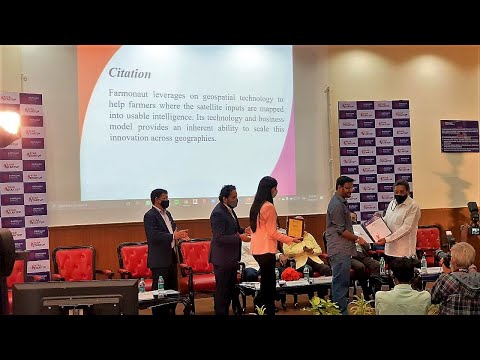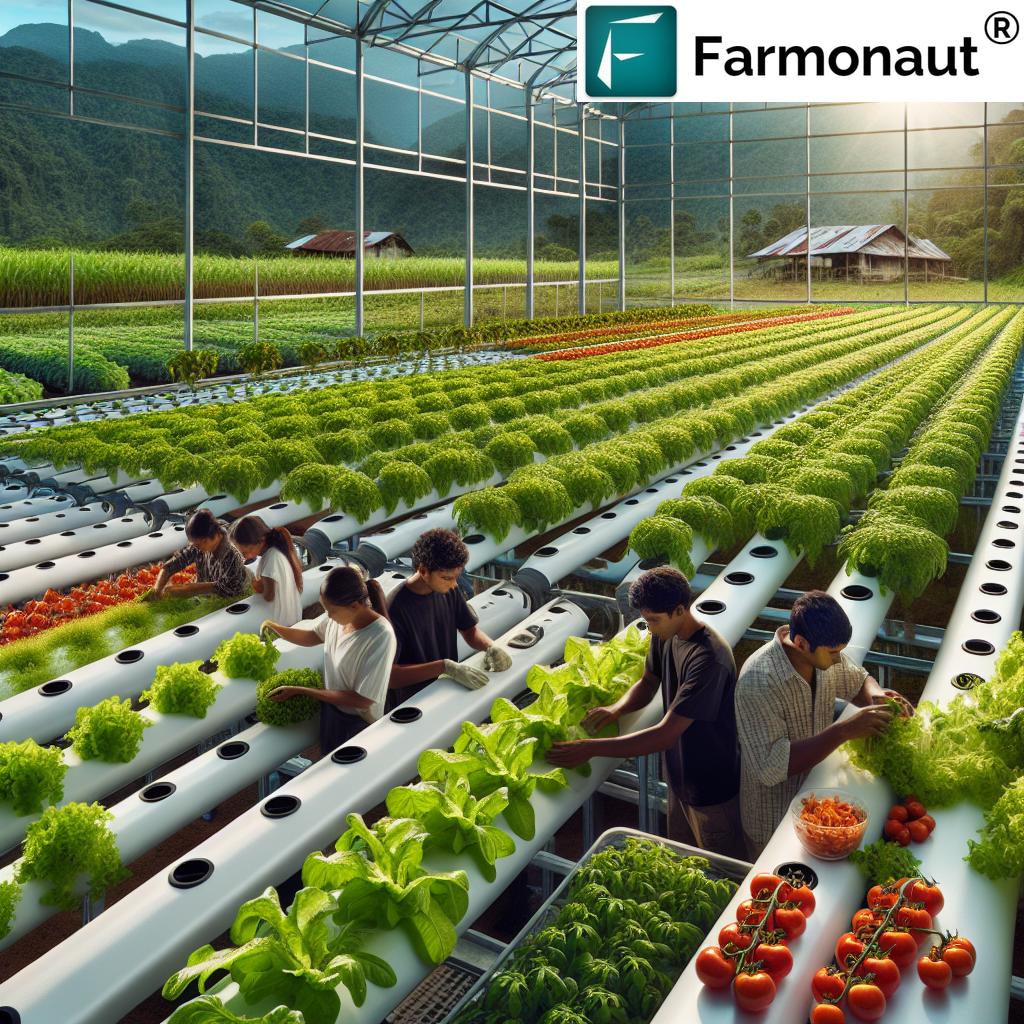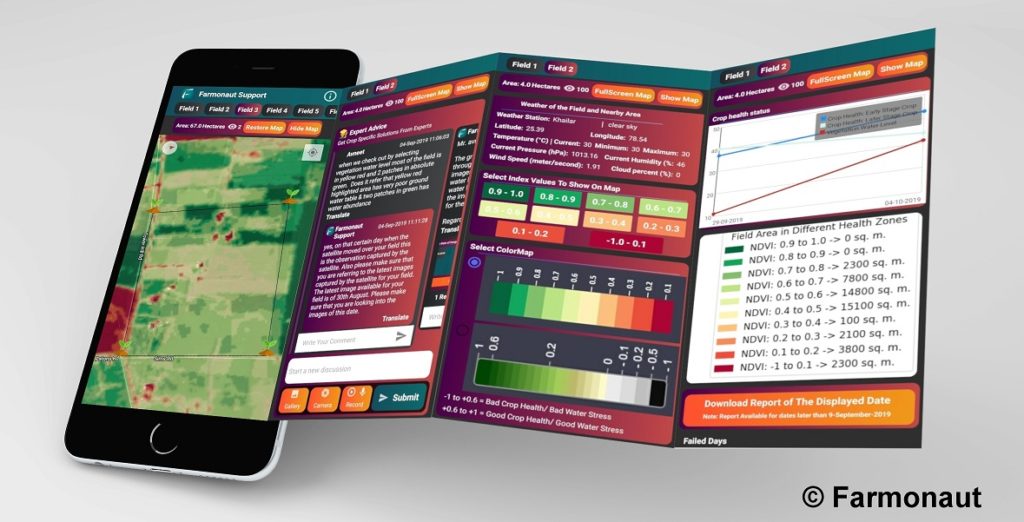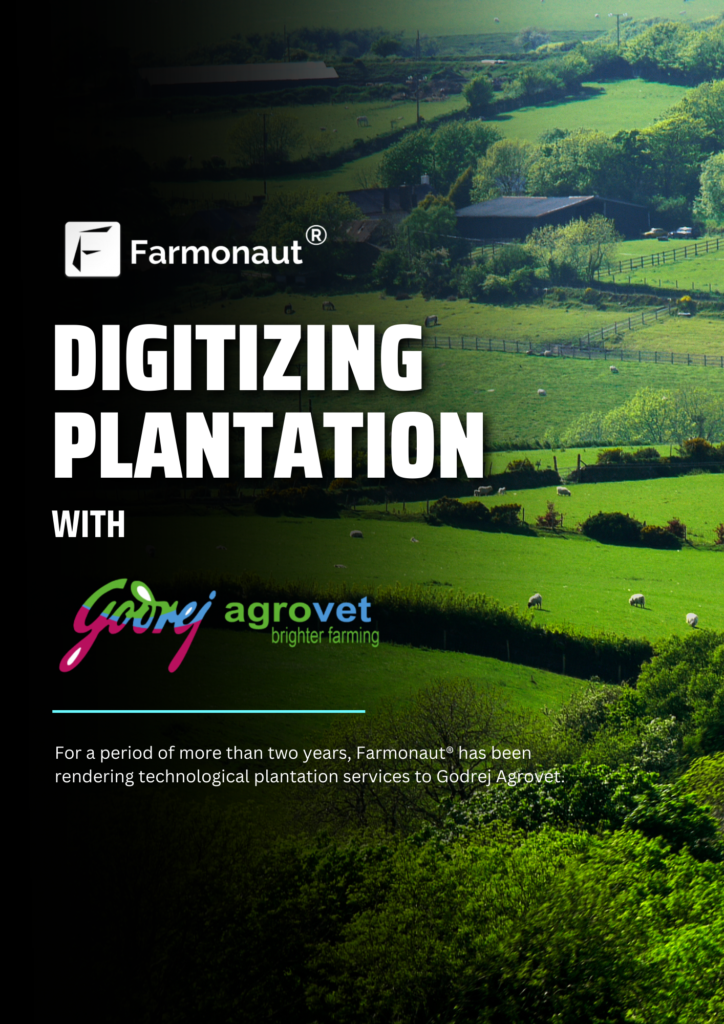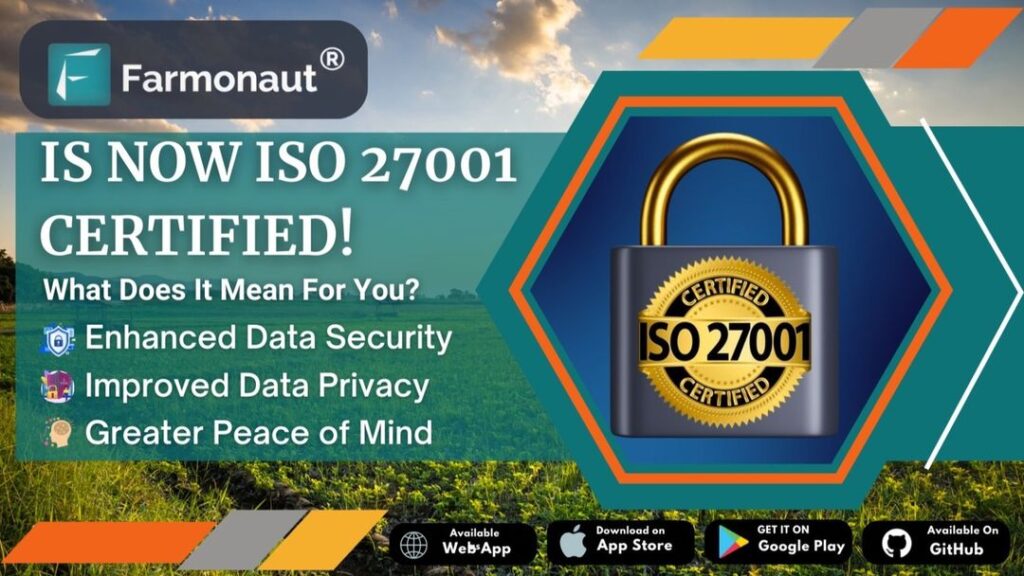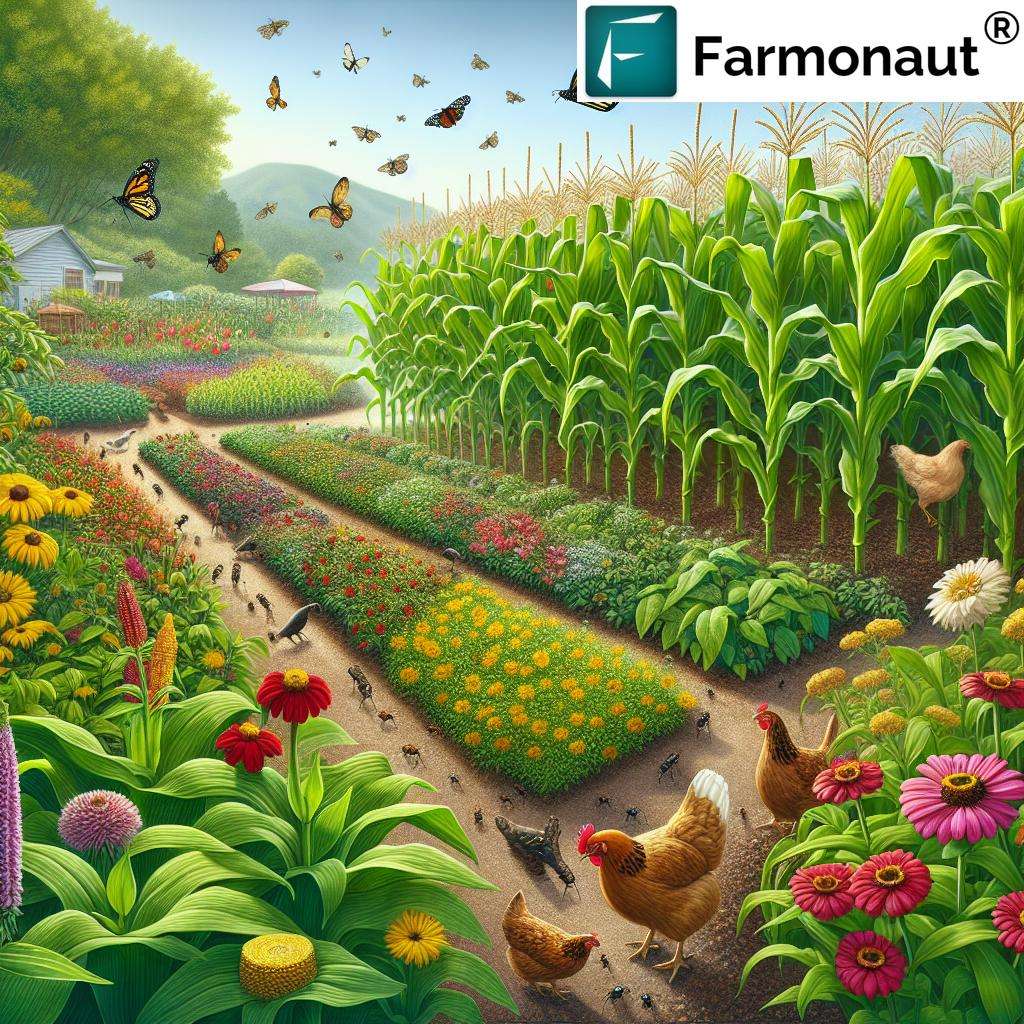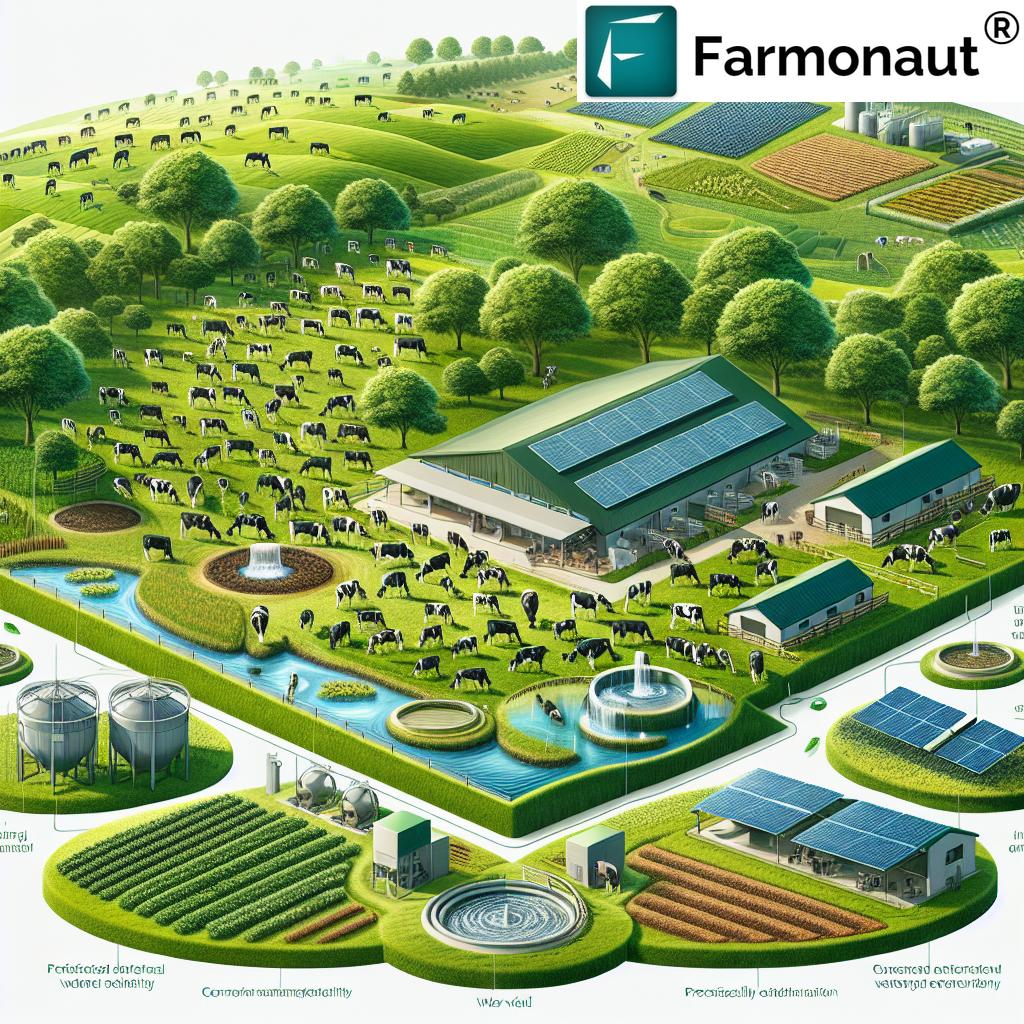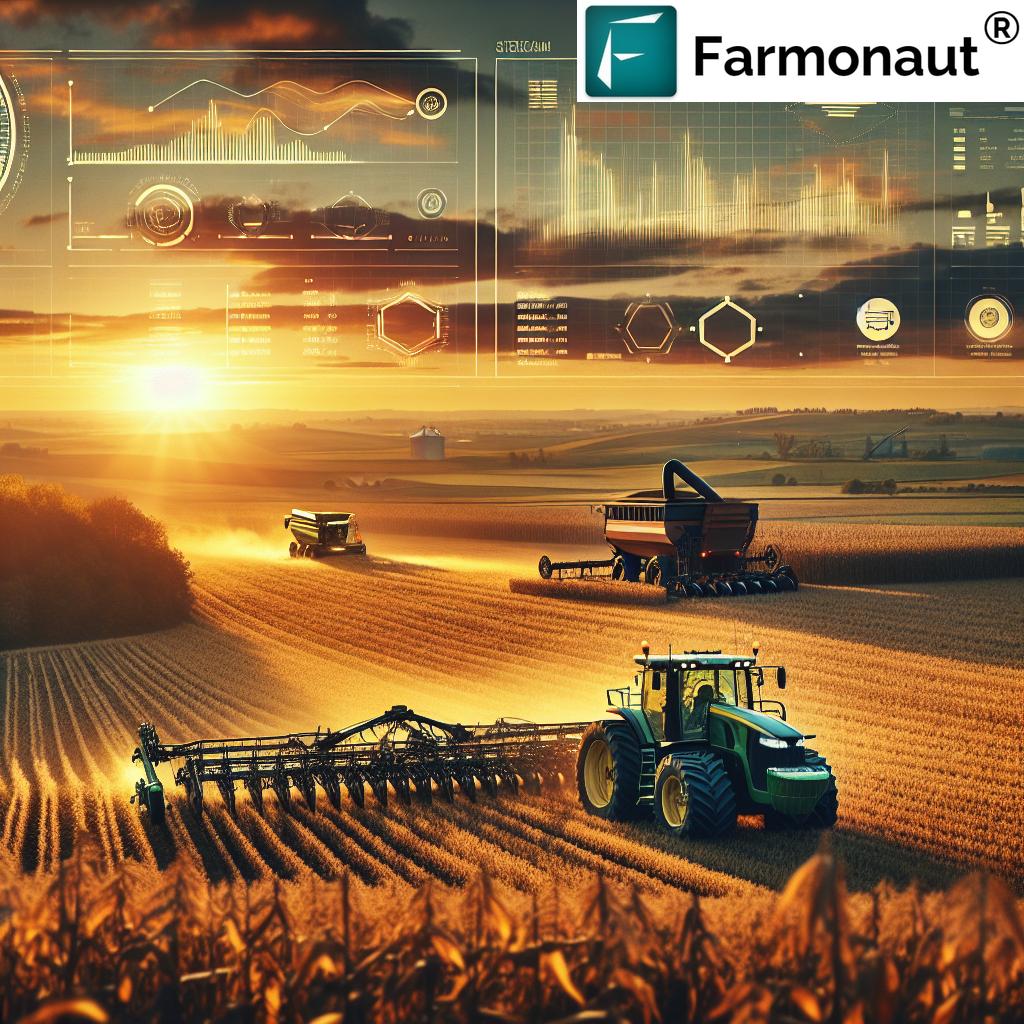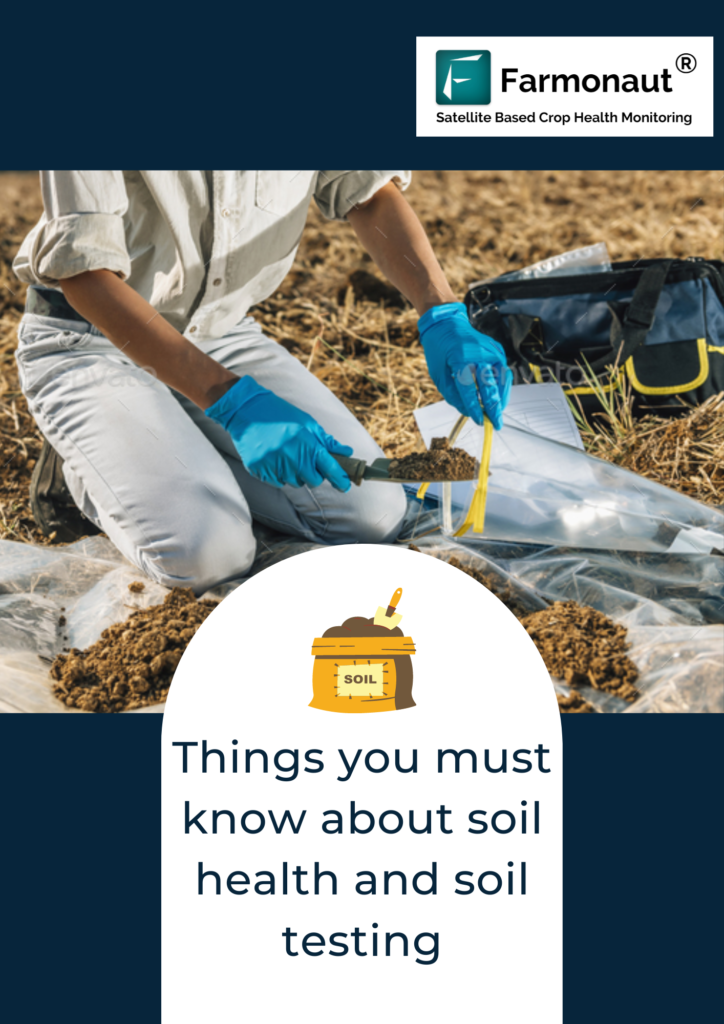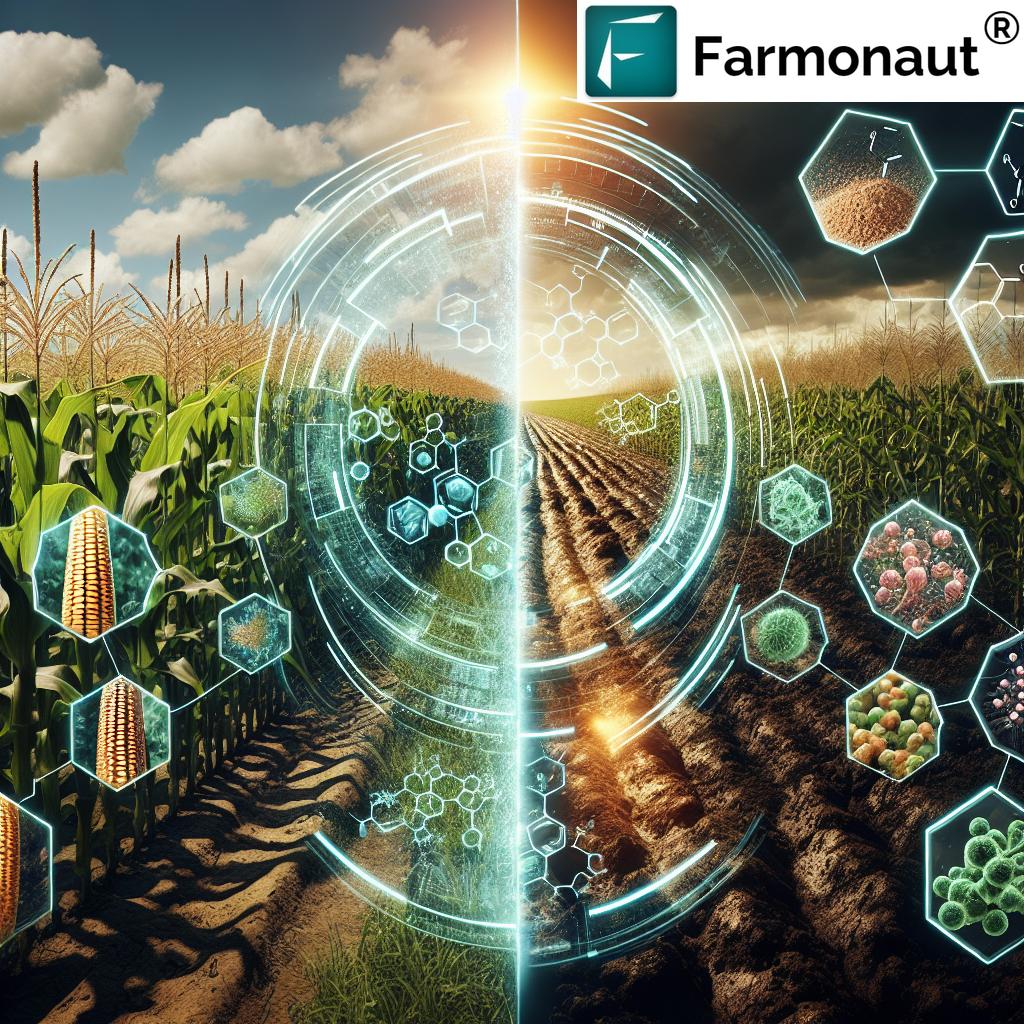Revolutionizing Crop Science Education: Innovations in Teaching and Technology for Sustainable Agriculture
“Over 70% of agricultural teaching awards emphasize innovative classroom approaches and student success rates.”
In the ever-evolving landscape of agriculture, crop science education stands at the forefront of innovation, shaping the future of sustainable farming practices. As we delve into the transformative world of agricultural excellence, we’ll explore how the industry recognizes outstanding teaching in crop science and the cutting-edge technologies revolutionizing the field. From undergraduate to graduate levels, the pursuit of knowledge in crop science is undergoing a remarkable transformation, driven by the need for sustainable solutions and precision agriculture.
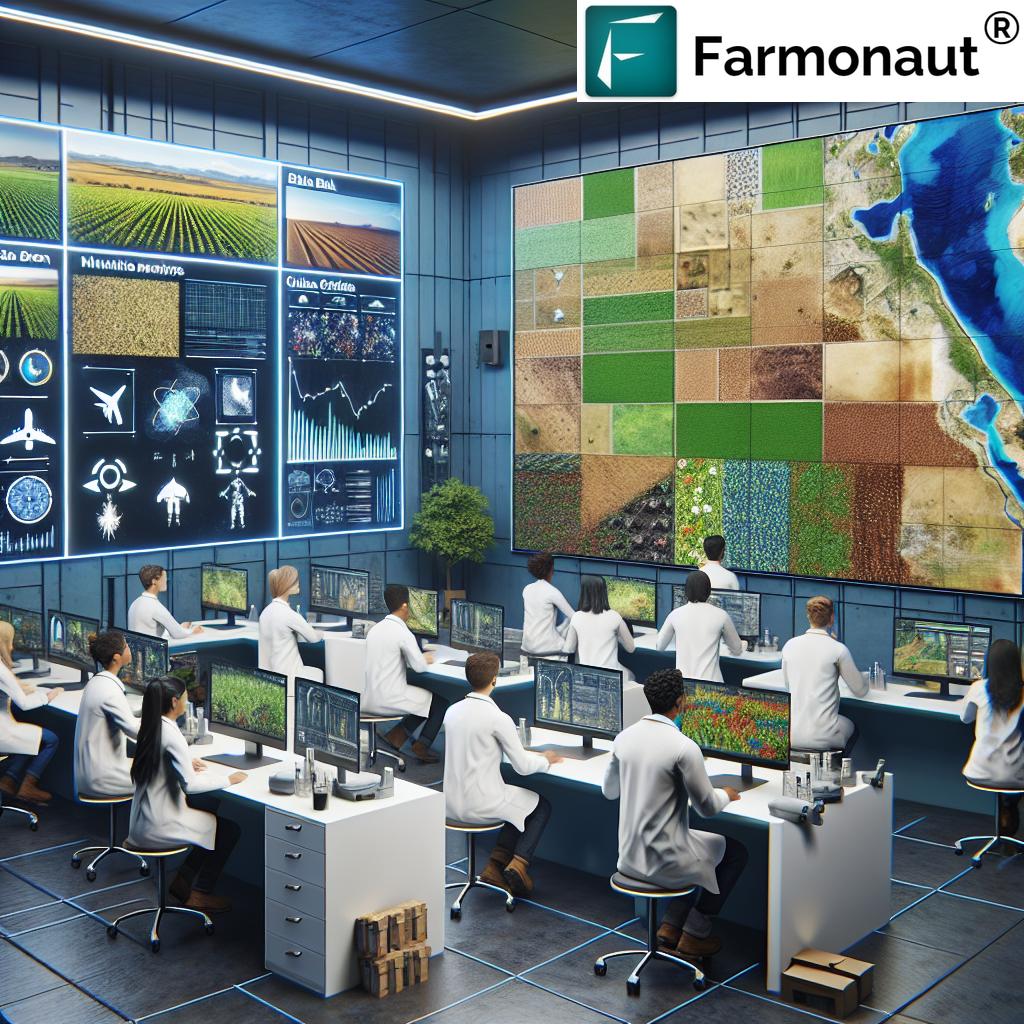
The Evolution of Crop Science Education
Crop science education has come a long way from traditional classroom-based learning. Today, it encompasses a wide array of innovative approaches that blend theoretical knowledge with hands-on experience. The Crop Science Society of America (CSSA) plays a pivotal role in recognizing and promoting excellence in teaching within this dynamic field.
- Integration of digital technologies in curriculum
- Emphasis on sustainable agriculture practices
- Focus on precision agriculture and data-driven decision making
- Incorporation of real-world problem-solving scenarios
These advancements in teaching methodologies are not just changing the way students learn; they’re reshaping the entire agricultural landscape. As we at Farmonaut observe, the integration of technology in education mirrors the digital revolution happening in farms across the globe.
Agricultural Teaching Awards: Recognizing Excellence
The recognition of outstanding educators in crop science is crucial for advancing the field and inspiring the next generation of agricultural professionals. Various organizations, including the CSSA, have established rigorous criteria for agricultural teaching awards that highlight the importance of innovative approaches and student success.
Key criteria for these prestigious awards often include:
- Classroom skills and innovative teaching methods
- Development of new courses or curricula
- Integration of research into teaching
- Mentoring and student career development
- Contributions to educational publications and journals
These awards not only honor individual achievements but also set benchmarks for excellence in crop science education. They encourage educators to continually refine their teaching methods and stay abreast of the latest developments in the field.
Innovative Farming Techniques: Bridging Education and Practice
The classroom is no longer confined to four walls. Modern crop science education incorporates innovative farming techniques that students can experience firsthand. These techniques not only enhance learning but also prepare students for the realities of modern agriculture.
- Vertical farming and hydroponics labs
- Drone technology for crop monitoring
- IoT sensors for real-time data collection
- Virtual reality simulations of farm environments
At Farmonaut, we recognize the importance of these hands-on experiences. Our satellite-based crop health monitoring system provides students and educators with real-world data that can be integrated into coursework, bridging the gap between theory and practice.
Sustainable Agriculture Practices in Education
Sustainability is no longer just a buzzword; it’s a critical component of modern agricultural education. Crop science programs are increasingly focusing on sustainable practices that minimize environmental impact while maximizing productivity.
- Organic farming methods
- Conservation tillage techniques
- Integrated pest management strategies
- Water conservation and efficient irrigation systems
These practices are not just taught in theory but are often implemented in university research farms, allowing students to see the long-term effects of sustainable methods. Our Jeevn AI advisory system at Farmonaut aligns perfectly with this educational trend, offering personalized farm advice that promotes sustainability.
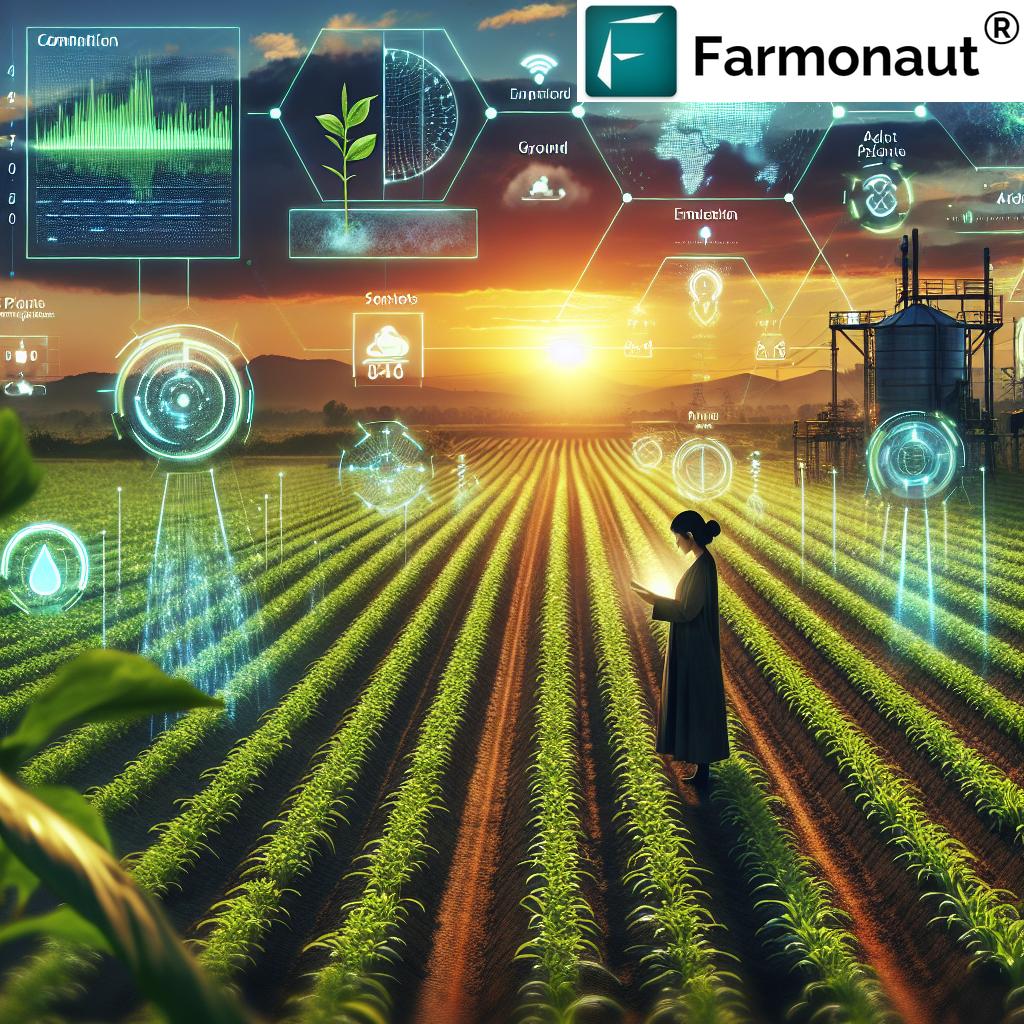
Precision Agriculture Technology: A New Frontier in Education
“Precision agriculture technologies can reduce water usage in crop production by up to 30%.”
Precision agriculture is revolutionizing the way we approach farming, and it’s becoming an integral part of crop science education. This technology-driven approach allows for more efficient use of resources and higher crop yields.
- GPS-guided machinery and auto-steering systems
- Variable rate technology for precise application of inputs
- Remote sensing for crop health assessment
- Big data analytics for farm management decisions
Educational institutions are incorporating these technologies into their curricula, often partnering with agtech companies to provide students with access to cutting-edge tools. At Farmonaut, we offer our satellite-based monitoring technology to educational institutions, allowing students to gain hands-on experience with real-world precision agriculture applications.
For those interested in exploring our precision agriculture solutions, you can visit our web application or download our mobile apps:
Agtech Research and Development in Academia
Universities are not just teaching centers; they’re hubs of innovation where agtech research and development flourish. Crop science departments are often at the forefront of developing new technologies and methodologies that shape the future of agriculture.
- Gene editing for crop improvement
- AI and machine learning for predictive analytics in farming
- Blockchain applications for supply chain transparency
- Robotics and automation in agriculture
These research initiatives often involve collaboration between academic institutions, industry partners, and government agencies. They provide valuable opportunities for students to engage in cutting-edge research and contribute to real-world solutions.
Soil Management Strategies: From Classroom to Field
Soil health is fundamental to sustainable agriculture, and modern crop science education places a strong emphasis on advanced soil management strategies. Students are learning how to analyze soil composition, implement conservation practices, and optimize soil health for maximum crop productivity.
- Cover cropping and crop rotation techniques
- Soil microbiome analysis and management
- Precision soil sampling and mapping
- Biochar and other soil amendments
At Farmonaut, we understand the importance of soil health in sustainable agriculture. Our satellite-based monitoring system provides valuable insights into soil moisture levels, helping farmers and students alike make informed decisions about soil management.
Climate-Smart Crop Production: Adapting to Change
As climate change continues to impact agriculture globally, crop science education is evolving to include climate-smart production methods. These approaches aim to increase agricultural productivity while adapting to and mitigating the effects of climate change.
- Drought-resistant crop varieties
- Agroforestry and intercropping systems
- Climate modeling and risk assessment tools
- Carbon sequestration techniques in agriculture
Educational programs are incorporating these climate-smart strategies into their curricula, preparing students to face the challenges of a changing climate. Our carbon footprinting feature at Farmonaut aligns with this educational focus, helping agribusinesses monitor and reduce their environmental impact.
Digital Farming Solutions: The Future of Agriculture
Digital farming solutions are transforming the agricultural landscape, and crop science education is keeping pace. Students are now learning to leverage digital tools and platforms to optimize every aspect of farm management.
- Farm management software and mobile apps
- IoT devices for real-time monitoring
- Predictive analytics for yield forecasting
- Digital marketplaces for agricultural products
These digital solutions are not just theoretical concepts in the classroom; they’re becoming essential tools for modern farmers. At Farmonaut, we’re proud to contribute to this digital revolution with our suite of farm management tools, including our API for developers who want to integrate our satellite and weather data into their own systems.
For those interested in developing with our API, you can find our comprehensive API Developer Documentation here.
Agricultural Career Development: Preparing the Next Generation
Crop science education is not just about imparting knowledge; it’s about preparing students for successful careers in agriculture. Educational institutions are focusing on comprehensive career development programs that include:
- Internship opportunities with leading agribusinesses
- Entrepreneurship programs for agtech startups
- Industry mentorship initiatives
- Professional skill development workshops
These career development initiatives are crucial in bridging the gap between academic knowledge and industry requirements. They ensure that graduates are well-equipped to tackle real-world challenges in agriculture.
The Role of Professional Recognition in Advancing Crop Science
Professional recognition plays a vital role in advancing crop science and encouraging excellence in the field. Awards, scholarships, and grants not only honor individual achievements but also serve to:
- Motivate educators and researchers to pursue innovation
- Highlight best practices in teaching and research
- Attract funding and resources to important agricultural initiatives
- Inspire students to pursue careers in crop science
Organizations like the Crop Science Society of America, through their various committees and initiatives, continue to play a crucial role in recognizing and promoting excellence in the field.
Crop Science Education and Innovation Matrix
| Educational Aspect | Traditional Approach | Innovative Approach | Impact on Sustainable Agriculture |
|---|---|---|---|
| Teaching Methods | Lecture-based, textbook-centric | Interactive, problem-based learning | ★★★★☆ |
| Technology Integration | Limited use of digital tools | AI-powered crop monitoring systems | ★★★★★ |
| Practical Training | Occasional field trips | Virtual reality simulations, remote sensing labs | ★★★★☆ |
| Research Focus | Yield improvement | Sustainability, climate resilience | ★★★★★ |
Conclusion: The Future of Crop Science Education
As we look to the future, it’s clear that crop science education will continue to evolve, driven by technological advancements and the pressing need for sustainable agricultural practices. The integration of precision agriculture, digital farming solutions, and climate-smart production methods into educational curricula is not just enhancing student learning; it’s shaping the future of global food production.
At Farmonaut, we’re committed to supporting this educational revolution by providing cutting-edge tools and technologies that bridge the gap between academic learning and real-world application. Our satellite-based monitoring systems, AI advisory tools, and blockchain traceability solutions are not just for commercial use; they’re valuable educational resources that prepare students for the agriculture of tomorrow.
As we continue to innovate and develop new solutions for the agricultural sector, we invite educators, students, and agricultural professionals to explore our platform and see how it can enhance their teaching, learning, and farming practices.
FAQ Section
Q: How is technology changing crop science education?
A: Technology is revolutionizing crop science education through the integration of precision agriculture tools, AI-powered analytics, virtual reality simulations, and satellite-based monitoring systems. These technologies provide students with hands-on experience and real-world data, preparing them for the digital future of agriculture.
Q: What are some key sustainable agriculture practices taught in modern crop science programs?
A: Modern crop science programs focus on sustainable practices such as conservation tillage, integrated pest management, precision irrigation, cover cropping, and the use of drought-resistant crop varieties. These practices aim to maximize productivity while minimizing environmental impact.
Q: How do agricultural teaching awards impact the field of crop science?
A: Agricultural teaching awards recognize excellence in education, motivate educators to innovate, highlight best practices, and inspire students to pursue careers in crop science. They play a crucial role in advancing the field and ensuring high standards in agricultural education.
Q: What role does precision agriculture play in modern crop science education?
A: Precision agriculture is a key component of modern crop science education, teaching students to use GPS-guided machinery, remote sensing technologies, and data analytics to optimize crop production. It prepares students to make data-driven decisions in farm management.
Q: How are universities preparing students for careers in agtech?
A: Universities are preparing students for agtech careers through interdisciplinary programs that combine traditional agricultural knowledge with computer science, data analytics, and engineering. They also offer internships, industry partnerships, and entrepreneurship programs focused on agricultural innovation.






